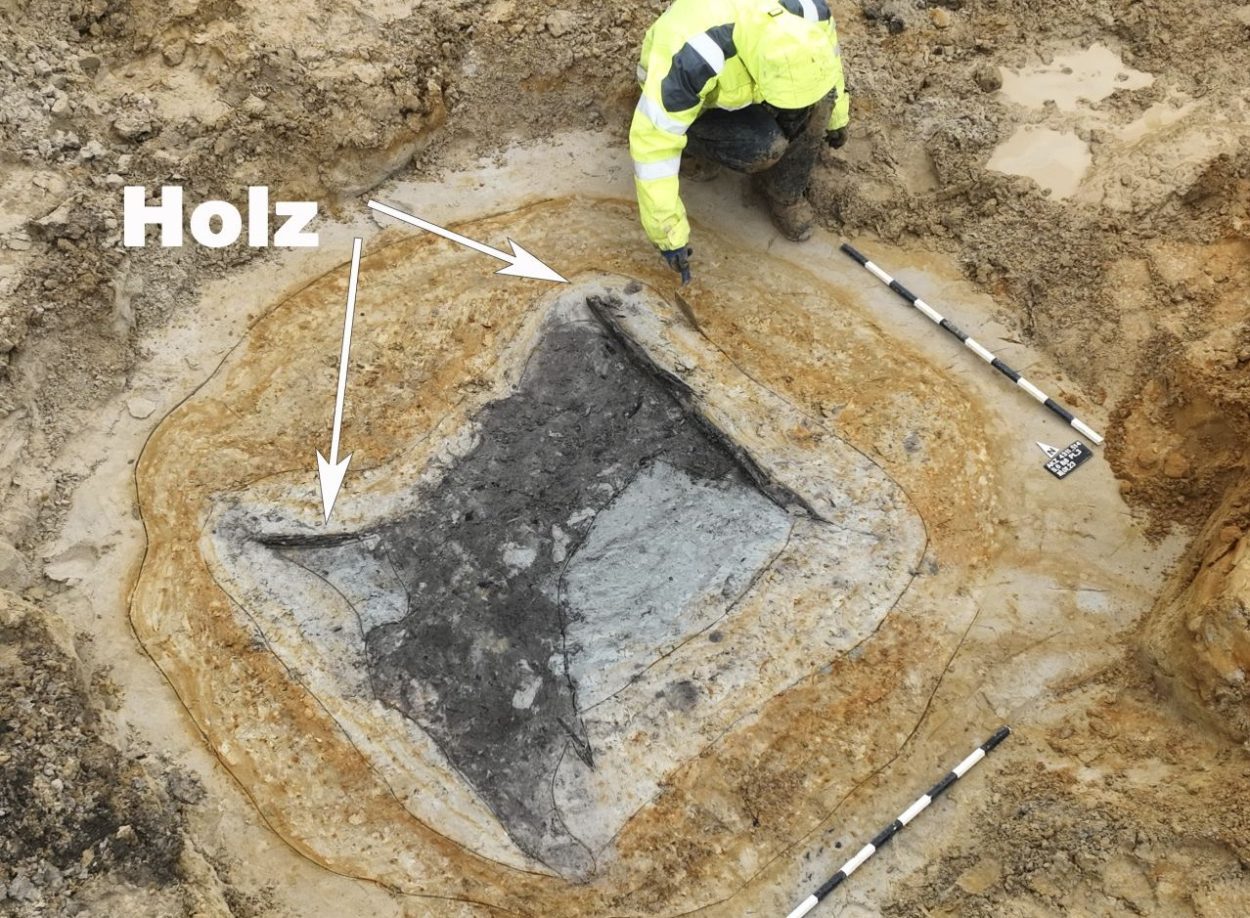Archaeologists have uncovered several medieval farmsteads and Iron Age burials near the town of Werne in the Federal state of North Rhine-Westphalia, Germany.
Excavations were conducted by the Westphalia-Lippe Regional Association (LWL), revealing traces of early medieval farmsteads and the ditches used to separate the farming plots.
Most of the plots have a residential building which date from the late 9th century AD, along with outbuildings such as barns, wells, and traces of dug-out hollows and postholes that indicate so-called sunken-featured buildings or pit houses.
Pit houses (known in Germany as Grubenhäuser) were structures built into the ground which were typically used to store food (just like a pantry, a larder, or a root cellar), however, in Germany they were also used as dwellings.
– Advertisement –
During this period, the areas on the edge of the Lippe floodplain was densely occupied with farmsteads for the fertile soil.

Archaeologists also found several graves that date from the Iron Age, indicated by cremated burials in burn-pit graves along with the remains of funeral pyres and associated grave goods.
Based on the dating evidence, it is likely that the burials are from the La Tène culture, a people that flourished during the late Iron Age (from about 450 BC to the Roman conquest in the 1st century BC), succeeding the early Iron Age Hallstatt culture.
According to the researchers: “Whether traces of a settlement from the same period can be found is one of the many questions to which we hope to find answers through further excavation progress.”
Header Image Credit : LWL
Sources : Regional Association of Westphalia-Lippe (LWL)
– Advertisement –

